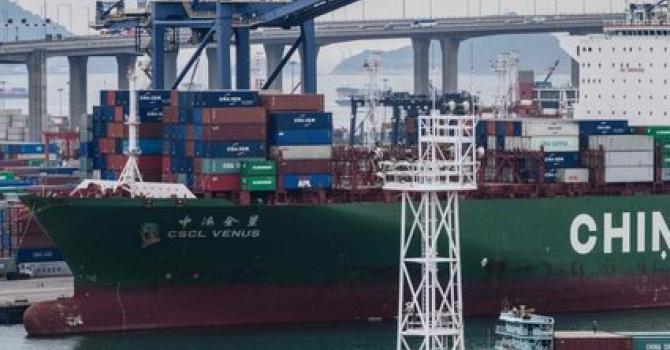CHINA DAILY: Policy Address displays daring and pragmatism
Christine Loh offers suggestions on how Lam can implement specific initiatives laid out in her plan for the city’s future
The chief executive’s 2018 Policy Address is nothing if not workwoman-like. Carrie Lam Cheng Yuet-ngor states her views clearly, if in a laundry-list style. She has a lot to offer Hong Kong.
Her vision of development is key to the city’s longer-term liveability and environmental condition. Land supply through reclamation, developing brownfield sites, creating a new land-sharing scheme with private landowners and a vision for Lantau Island are all important, as are the many initiatives for the government to build housing, revitalize old industrial buildings, providing transitional housing for low-income households, and improving and expanding infrastructure, including the city’s transport services. Equally commendable are her new initiatives to help the retirees, the elderly, the disabled and the ethnic minorities.
There are statements inserted here and there showing her appreciation of liveability and the environment. For example, in supporting reclamation, it is not just about packing in more housing but to “thin out” the dense population in the existing urban areas to facilitate the redevelopment of old areas. There will be “carbon neutral” pilot zones; new district cooling systems; and the construction industry will have fresh funding to improve not only overall quality and safety but to specifically reduce environmental impact.
Over the years, environmental consideration has become more important in public works, and government engineers are working on climate change threats to better defend the city’s infrastructure. New ideas have been implemented, such as providing funds to government departments to improve energy efficiency, as well as generate renewable energy where possible on sites they control. It is good to hear the government will make such schemes more systematic.
The challenge within the bureaucracy is integrating climate change and environmentalism into the government’s overall decision-making and giving civil servants at all levels the basic understanding that resource efficiency, decarbonization, pollution reduction, waste management and better environmental health for the people are required goals in every project, and all departments must weave them into their portfolios. It cannot be the job of the Environment Bureau and Environmental Protection Department alone.
The chief executive could make environmentalism an overarching requirement throughout the public sector. Ongoing civil service training that will eventually lead to the creation of a physical academy could start with running appropriate courses to help officers understand the impact of their decisions so they can make better choices.
The reason environmentalism — including decarbonization — alongside innovation and technology, deserve such overarching treatment in policy terms is because they are global and national megatrends. Lam acknowledges the national-global context when she says Hong Kong “needs to draw up by 2020 our own long-term decarbonization strategy up to 2050” but she missed the emphasis that megatrends require mega-responses so that Hong Kong and its people can compete in a hyper-change world.
Any decarbonization plan will require Hong Kong to do as much as possible in generating clean power and saving energy. Around the world, a key focus in innovation and technology through the use of big data is to achieve resource efficiency. This is the “holy grail” of decarbonization, which is also expressed through the aspirations of better, smarter and greener living.
While government departments can be allocated funds to adopt renewable projects, the government also needs to have the right policies to get businesses and households to do so too. The feed-in-tariff scheme, already in place through the new scheme of control with the two electricity suppliers in Hong Kong, is attractive to private sector adopters because they can sell the energy they generate for a much higher price. For starters, the decarbonization plan must remove the current 1-megawatt limit on such projects for two reasons — firstly, technology is moving ahead quickly; and secondly, innovative financial models can package renewable projects to create markets. Since Hong Kong has no land for large renewable farms, it must innovate to both generate renewable power and save energy.
Lam knows it is important to promote science and research, which is why these are included in her Policy Address, but she could leave a stronger mark by making a strategic statement about megatrends that is so vital to spurring Hong Kong’s competitive advantage. If nothing else, her speech could be less like reading a long disjointed menu.
It is excellent for Hong Kong to rid itself of Euro IV diesel commercial vehicles (DCV) by 2023, which takes up 23 percent of the city’s current DCV fleet. This new initiative follows the previous administration in phasing out all pre-Euro IV DCV. That means by end 2023, the city will only have Euro V and VI DCV — in other words, a much cleaner fleet.
While money will be available to franchised bus companies to retrofit Euro IV and V buses to reduce emissions, it seems there is still insufficient confidence for Hong Kong to adopt e-buses — likely because e-double decked buses are not yet available for commercial purchase.
Lastly, the government is about to put the long-awaited municipal solid waste charging scheme bill to the Legislative Council. This is a very significant step for Hong Kong, which is often criticized for not doing enough in waste management. There will be many aspects people can argue over — they must look at the bill in terms of making it work rather than killing it due to its complexity. The government must reach out to all stakeholders to work out the complicated logistics. A spirit of collaboration is essential to making it work in high-density Hong Kong.
This article is written by Christine Loh, chief development strategist, Institute for the Environment, HKUST and board member of CDP Worldwide, London; and also Jade Yung who is a freelance content and creative writer. She writes about innovation in multiple disciplines, including arts and culture, wellness and sustainability.
The article has appeared on China Daily https://www.chinadailyasia.com/articles/139/249/60/1539658188582.html?newsId=50908




